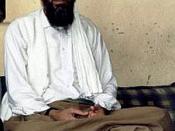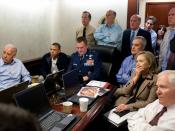On August 20,1998 the United States launched retaliatory and preemptive missile strikes against training bases and infrastructure in Afghanistan used by groups affiliated with radical extremist and terrorist financier Usama bin Laden. A "pharmaceutical" plant in Sudan, making a critical nerve gas component, was destroyed as well. This is the first time the U.S. has unreservedly acknowledged a preemptive military strike against a terrorist organization or network. This has led to speculation that faced with a growing number of major attacks on U.S. persons and property and mounting casualties, U.S. policymakers may be setting a new direction in counter-terrorism- a more proactive and global policy, less constrained when targeting terrorists, their bases, or infrastructure. Questions raised include: What is the nature and extent of any actual policy shift; what are its pros and cons; and what other policy options exist? Issues of special concern to Congress include: (1) U.S,
domestic and overseas preparedness for terrorist attacks and retaliatory strikes; (2) the need for consultation with Congress over policy shifts which might result in an undeclared type of war; and (3) sustaining public and Congressional support for a long term policy which may prove costly in: (a) dollars; (b) initial up-front loss of human lives, and (c) potential restrictions on civil liberties. Whether to change the 1 presidential ban on assassinations and whether to place Afghanistan on the "terrorism" list warrants attention as well. This short report is intended for Members and staffers who cover terrorism, as well as U.S. foreign and defense policy. It will be updated as events warrant. For more information, see CRS Issue Brief 95112, Terrorism, the Future and U S. Foreign Policy and CRS Report 98-722F, Terrorism: Middle East Groups and State Sponsors.
Background On August 7, 1998, the U.S. Embassies in Kenya and Tanzania...


